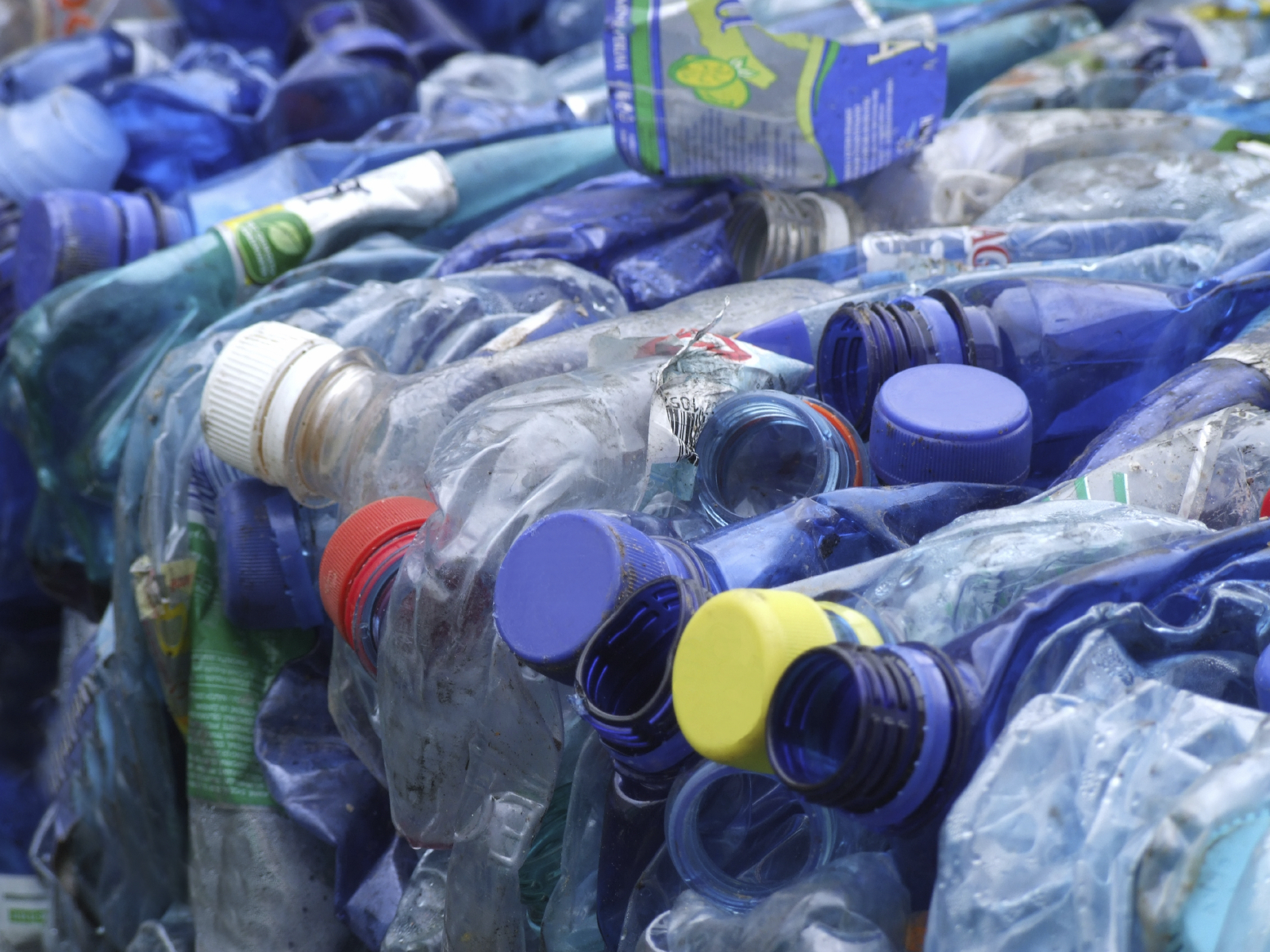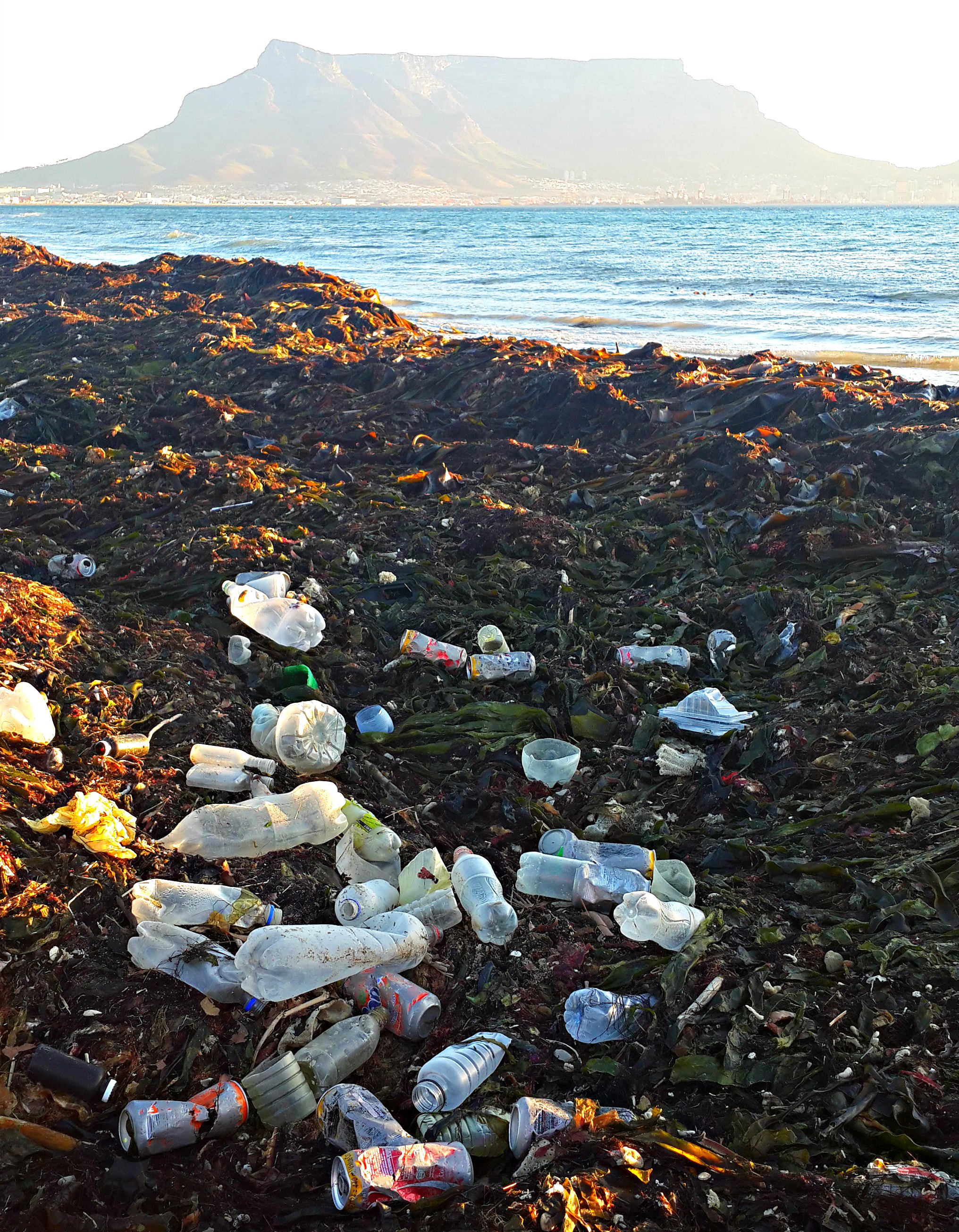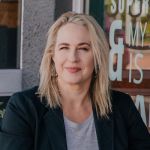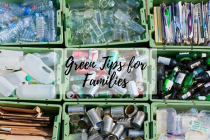I love my country and the world we live in and want to conserve and care for it as much as I can. There is so much within our power and control that we can do, simple everyday things that can make a difference!
This is a picture I took whilst walking on a Cape Town beach in April 2016. I was shocked to be surrounded by plastic waste in such a beautiful setting. There was literally kilometres of beach with mounds of kelp covered in plastic waste. I have always been a bit of an eco- warrior so decided to do some research and share some important information.
Did you know that plastics are made from oil, a non-renewable resource, and much of plastic packaging is recyclable? Ice cream, milk containers, fabric softener bottles, plastic bags and even cling-wrap can all be recycled.
Why recycle?
Recycling is very important as waste has a huge negative impact on the natural environment. Recycling helps to reduce the pollution caused by waste. Harmful chemicals and greenhouse gasses are released from rubbish in landfill sites.
Recycling reduces the amount of rubbish sent to landfill sites and most items that are recycled are reprocessed into new products.
Plastics generally do not degrade as they are made from petroleum-based chemicals. The complex chemistry of plastic is in part responsible for the environmental crisis that we are facing. Plastics are made from different plastic polymers and it is important that similar plastics are recycled together.
Did you know that the average time for a plastic bottle to completely degrade.is at least 450 years? It can even take some bottles 1000 years to biodegrade! That’s a long time for even the smallest bottle. (www.postconsumers.com)
According to Treevolution in South Africa the recovery rates for various materials are as follows:
- Cans: 69 percent
- Paper: 59 percent
- Glass: About 25 percent
- Plastic: About 17 percent
That means just 17% of the plastic we use is recycled!!
What you can recycle
It would be great if it said on the plastic packaging yes, recycle, no, can’t recycle but unfortunately it is not that simple. Here’s why:
- Some types of plastic are easy to recycle and others are not.
- There are more buyers for certain types of recycled plastics than for others, so recycling facilities have an incentive to recycle certain types of plastics over others.
The easiest way to determine whether a plastic product is recyclable is by looking for its recycling logo. There are seven plastic recycling logos and most plastic packaging is imprinted with one of them. The logos tell you what type of plastic a container is made of. Each type has to be recycled separately. (Plastic recycling logos from Treevolution)
The number inside the symbol indicates the type of plastic. Most wanted for recycling = PET (No.1), HDPE (No.2) and LDPE (No.4):
| NUMBER |
PLASTIC TYPE |
EXAMPLES |
| 1 | PET (polyethylene terephthalate) | clear coke, cool drink or bottled water bottles |
| 2 | HDPE (high density polyethylene) | white or coloured milk, juice or shampoo bottles |
| 3 | PVC (polyvinyl chloride) | bottles used for turpentine, methylated spirits etc. or shampoo and juice |
| 4 | LDPE (low density polyethylene) | most plastic bags |
| 5 | PP (polypropylene) | certain yogurt, shampoo bottles etc. |
| 6 | PS (polystyrene) | includes “Styrofoam” packaging and hamburger boxes etc. |
| 7 | Other | includes a wide variety of plastics, including computer screen casings |
List from City of Cape Town Website
What you can’t recycle
- Multi-laminated plastic foils (for food packaging such as bacon)
- Polystyrene food trays
- Any plastic that does not have a polymer identification code on it
- Mixed polymers
- PET bottles covered in PVC labelling
It is a good idea to check what is recyclable with your local drop-off facility.
Reduce your plastic waste
- Buy only what you need
- Choose products that are not heavily processed
- Buy refills when you can
- Buy in bulk- less packaging
- Repair broken items
Reuse your plastic waste
- Donate to charities or other organizations e.g. plastic toys
- Use ice cream or margarine tubs for storage or donate to schools for reuse
Tips to prepare plastic waste for recycling
- Remove bottle caps
- It is a good idea to rinse the plastic
- Flatten the bottles before transporting. They take up less space and more can fit into the vehicle
It’s pretty simple, separate your waste and drop off at recycling facilities or do your research to see if anyone fetches from your area. For our kids and this precious planet of ours please just do it, do the right thing and recycle.
Enjoy reading my other Blog post about What I love About South Africa.
If you’ve enjoyed this post and would like to engage with me, you can find me posting pics, stories and other inspiring stuff on Instagram, Face Book and Twitter.






0 Comments